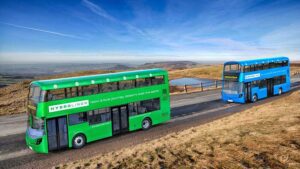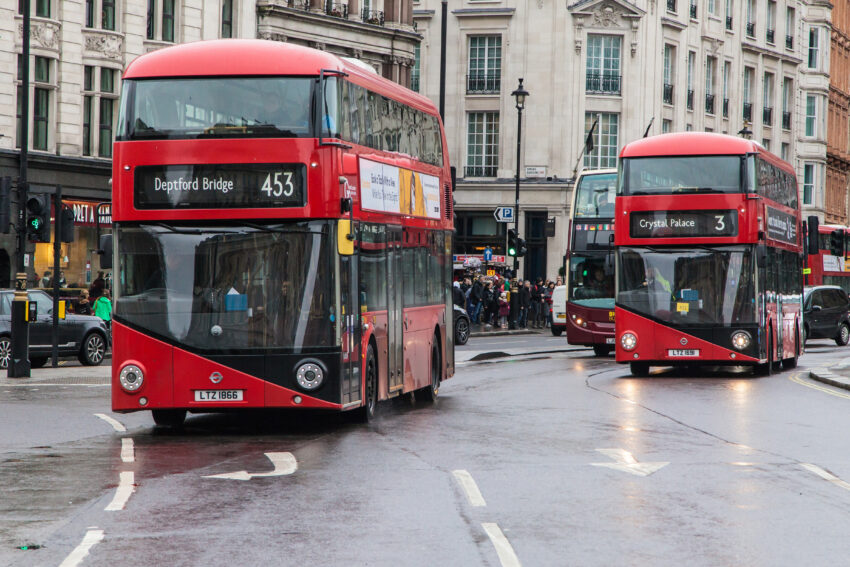
Northern Ireland bus manufacturer Wrightbus is set to supply up to 1,000 zero-emission buses across the UK as it embarks on a significant expansion programme, increasing production by 40% and creating 1,000 new jobs over the next two years.
The Ballymena-based firm also revealed plans to invest £5 million in developing the UK’s first long-distance hydrogen coach, capable of travelling 1,000km (621 miles) on a single refuelling of its hydrogen fuel cells. The move forms part of a wider £25 million research and development initiative to advance zero-emission transport technologies.
Best known for designing the modern take on London’s iconic Routemaster bus, Wrightbus has undergone a dramatic transformation since collapsing into administration in 2019. The company was rescued by Jo Bamford, son of JCB chairman Lord Bamford, who set out to reinvent it as a global leader in clean transport.

Today, 95% of its production is zero-emission, a stark contrast to the pre-pandemic years when 95% of its output was diesel-powered. The manufacturer now produces a mix of battery-electric and hydrogen fuel cell vehicles, with three-quarters of its output destined for the UK’s growing clean bus market, including major orders from Transport for London.
At an event at its headquarters, attended by Peter Kyle, Secretary of State for Science, Innovation and Technology, Wrightbus outlined its ambitious plans. Production will rise from 1,000 buses in 2023 to 1,200 this year, reaching 1,400 by 2026, while the workforce will expand from 1,500 to 2,500.
“Wrightbus is leading a revolution with a clarity of vision, investment, and total alignment with its workforce, which is rarely found,” said Kyle. “The level of innovation and quality standards here are setting the pace for the future of zero-emission transport in the UK.”
The company’s focus on British manufacturing aligns with the Labour government’s Plan for Change strategy to decarbonise the economy and boost domestic industry. Kyle added: “We’ve been quite explicit: if you can buy British, buy British.”
While acknowledging the UK cannot compete on battery production costs, Kyle said Wrightbus’s progress in hydrogen technology puts Britain in a strong position to lead globally.
“That ship has sailed when it comes to battery cost competitiveness,” Kyle said. “But with hydrogen, Britain is market-leading — and Wrightbus’s development of hydrogen coaches for airport and intercity transport is a prime example of where we can take a global leadership role.”
Jean-Marc Gales, Wrightbus CEO and former senior director at Peugeot, said the company’s growth and clean technology innovation are transforming UK transport. With strong backing from government and industry alike, Wrightbus is rapidly becoming a flagship of Britain’s clean industrial future.
Read more:
Wrightbus to build 1,000 zero-emission buses as part of major expansion drive
